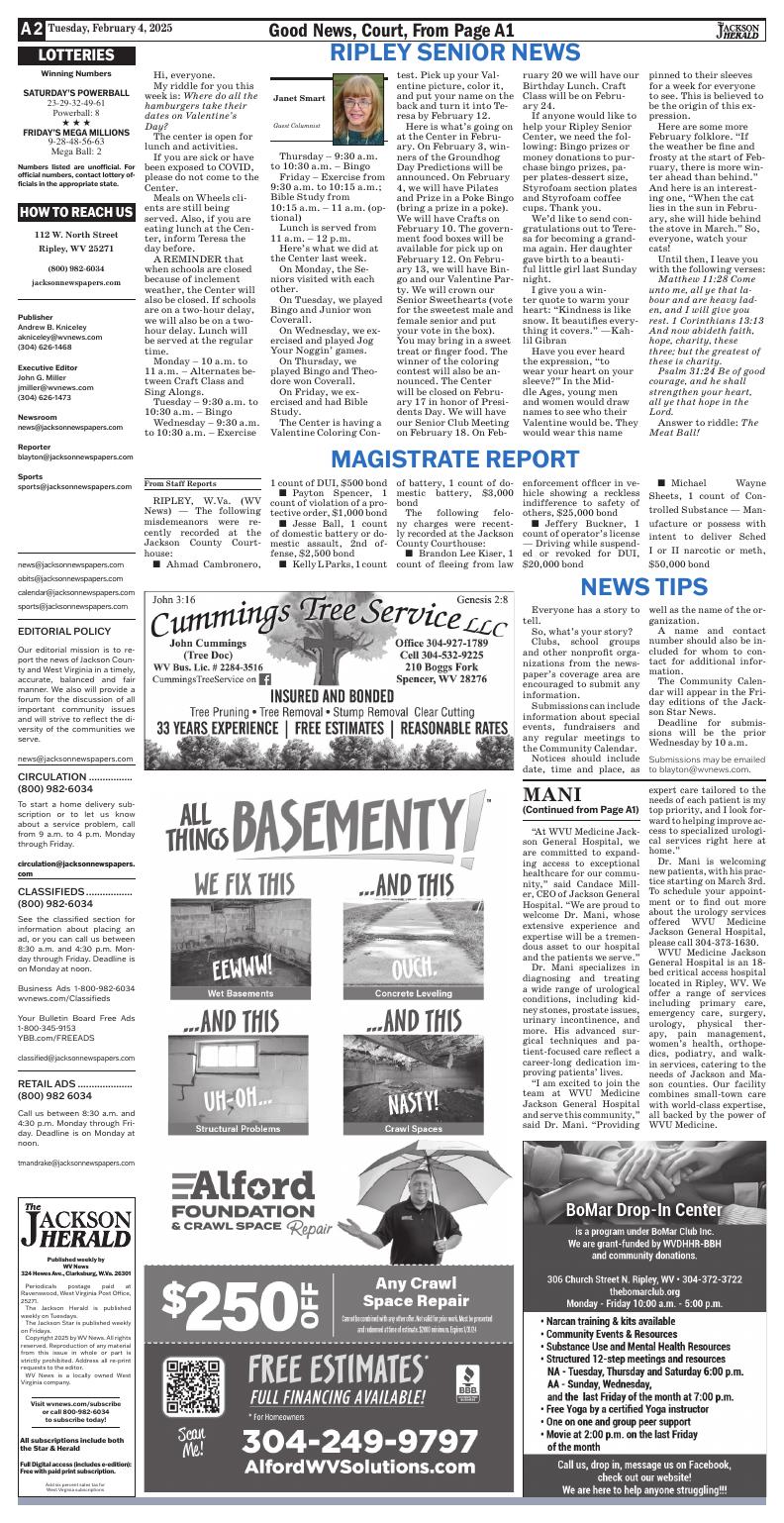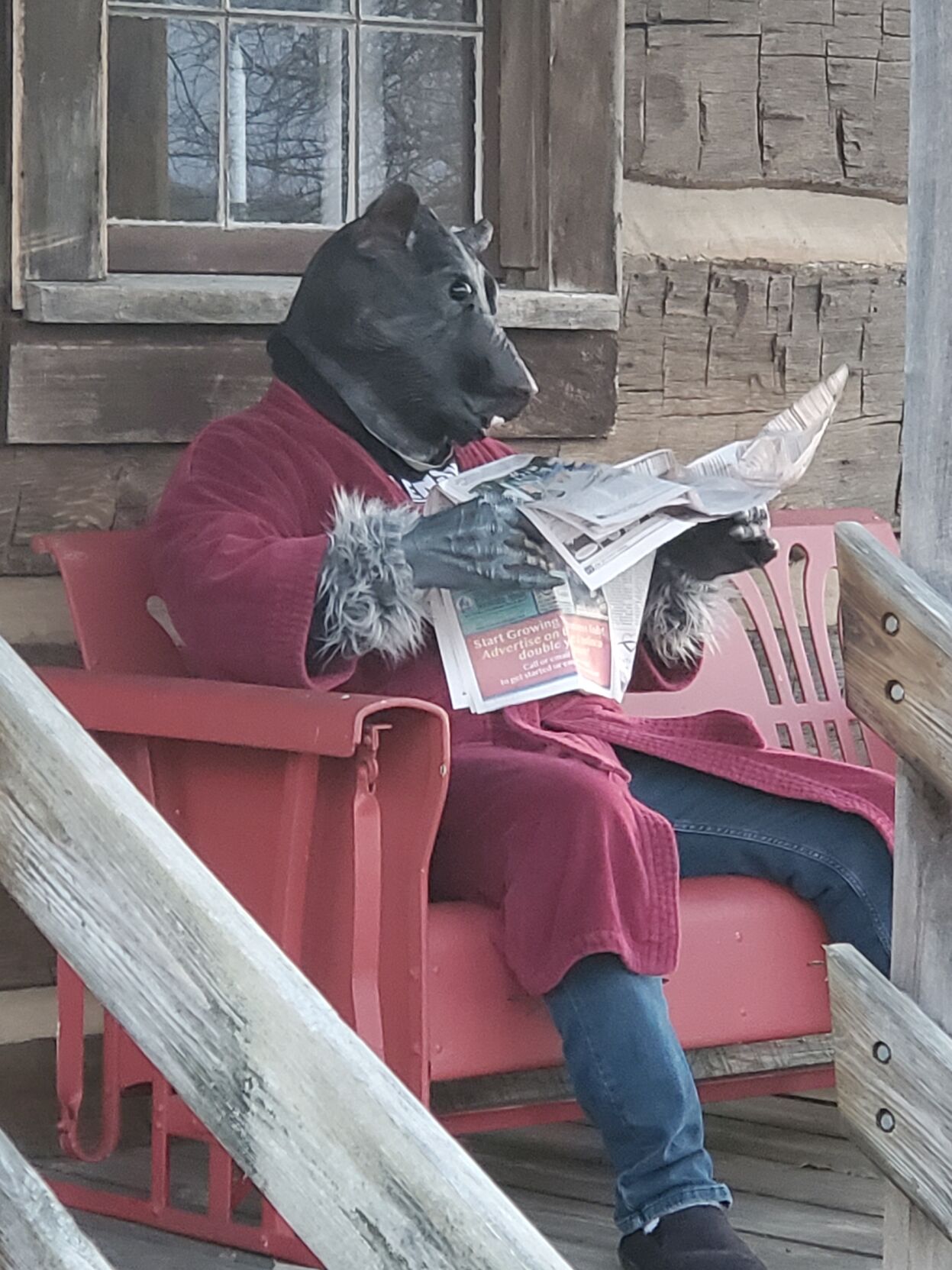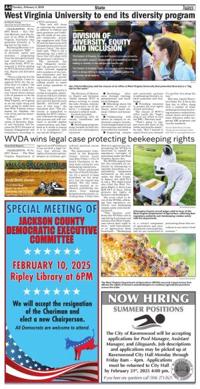Building bridges: local trucking company helps in North Carolina
KENNA, W.Va. (WV News) — When Dustin Hinzman was sent to North Carolina after the massive floods hit the region, he didn’t know what to expect.
Hinzman, owner of Hinzman Trucking in Kenna, does independent work but is also leased through Tryon Trucking in Barboursville.
“Our job was to haul down train cars that had been flattened and able to be used for bridges,” he said. “It’s a pretty interesting process.”
What he saw when he got to his first assignment in Chimney Rock, North Carolina, was devastation.
“It’s hard to put into words,” he said. “A few buildings were still standing, but most of the foundations were gone. Lots of dump trucks were bringing in gravel.”
What struck Hinzman the most was how humble the residents were.
“There was one house a good ways up the mountain,” he said. “This young lady came down with a big bag and handed us breakfast. All she could say was, ‘We’re so glad you’re here to help.’ She described how the waters came up so fast and became emotional when she spoke of seeing people floating by her. We accepted the breakfast because it meant so much to her to thank us.”
Hauling these “bridges” is nothing new to Hinzman. It’s not been something he’s done regularly, but he’s familiar with it.
“In simple terms, piers are built and these flattened railway cars go on top,” he said. “Then it’s blacktopped. They’re temporary bridges, but they get the job done.”
The problem is the number of bridges and roads still washed out.
“We’d get one open and there might be five more out down the road,” he said. “It’s overwhelming.”
Getting to the areas is a challenge.
Hinzman describes wreckers and dozers having to come in to chip out rock cliffs.
“There’s a lot involved to the whole process,” he said. “And for quite a while, there’s been a lot of red tape to get through. I give a lot of credit to the owners of Tryon Trucking, Dave and Christina King, for dealing with all that for us. Sometimes, I think their job was as hard as ours.”
The permits that were required often caused a lot of delays.
“Because we were oversized loads, there were regulations that told us which way we could go in,” Hinzman said. “The experts were using Google Earth, so they’d send us to areas with no roads anymore. We’d have to go back and start over. It was incredibly frustrating.”
The roads they could travel were often blocked with tree limbs, debris and rocks that had to be removed. Hinzman described seeing piles of trees three times the size of the Ripley Walmart.
Once they got to the place for the bridge, Hinzman said if everything worked perfectly, they could build one in two days.
“Weather was a factor, of course,” he said. “Getting everything coordinated with all the equipment was a task, too. I would go to Illinois to pick up the rail cars and haul them to North Carolina. And the piers were made of concrete, so putting them in depended on the weather.”
Hinzman said he estimates that he has worked on 15 bridges, and, at this point, Tryon Trucking probably has done 50.
The work has been focused in a 75-mile radius of Asheville. He’s been to Hickory, Burnsville, Mars Hill, Chimney Rock, Marion, Asheville and Bat Cave.
He’s seen people still living in campers and tents. They go to the truck stops to take showers.
“It has not been easy for these folks,” Hinzman said. “I’m not trying to be political, but I’ve not been impressed with FEMA and instructions for folks to set up accounts. There was no way they could do that without internet or cell service. The most help seemed to come from Samaritan’s Purse. You saw them everywhere.”
Hinzman has heard many stories, but one stuck with him.
“One guy was trying to get out of his house and had his dog with him,” he recalled. “The water got so deep and fast that he lost his footing and lost hold of his dog. Somehow, he was able to grab onto something, and he said, ‘I just kept praying; I thought I was going to die.’ He said he got his footing and his dog popped up right in front of him. That was a happy ending to that story.”
This Ripley High 2008 graduate said he was proud of all the West Virginians coming down to help.
“We were there for the bridge building, hauling rock and debris,” he said. “It takes skill to work in that terrain. And we were used to it. It was sort of like mountain people helping mountain people. And I can’t express enough how appreciative those folks down there are for the help.”
Hinzman said that the work is easier now.
“The permit requirements have been eased or lifted in some cases,” he said. “Again, I’m not being political, but it’s like the difference between night and day since the President’s executive orders cleared the way.”
Hinzman will continue to go to North Carolina while also continuing to operate his independent business.
“I don’t know how long we’ll be going down,” he said. “They will be rebuilding for years to come. There are still 156 secondary roads that are closed down there. They’re estimating a minimum of ten years of recovery.”
But Hinzman said he sees signs of faith and hope.
“On my last trip down there, I was going about four or five miles into the mountains near Burnsville,” he said. “Everything was wiped out except for one thing. In the middle of a field stood a steel pole about 15 feet high with a sign on it that said, ‘Jesus loves you.’ It was standing completely straight.”


























